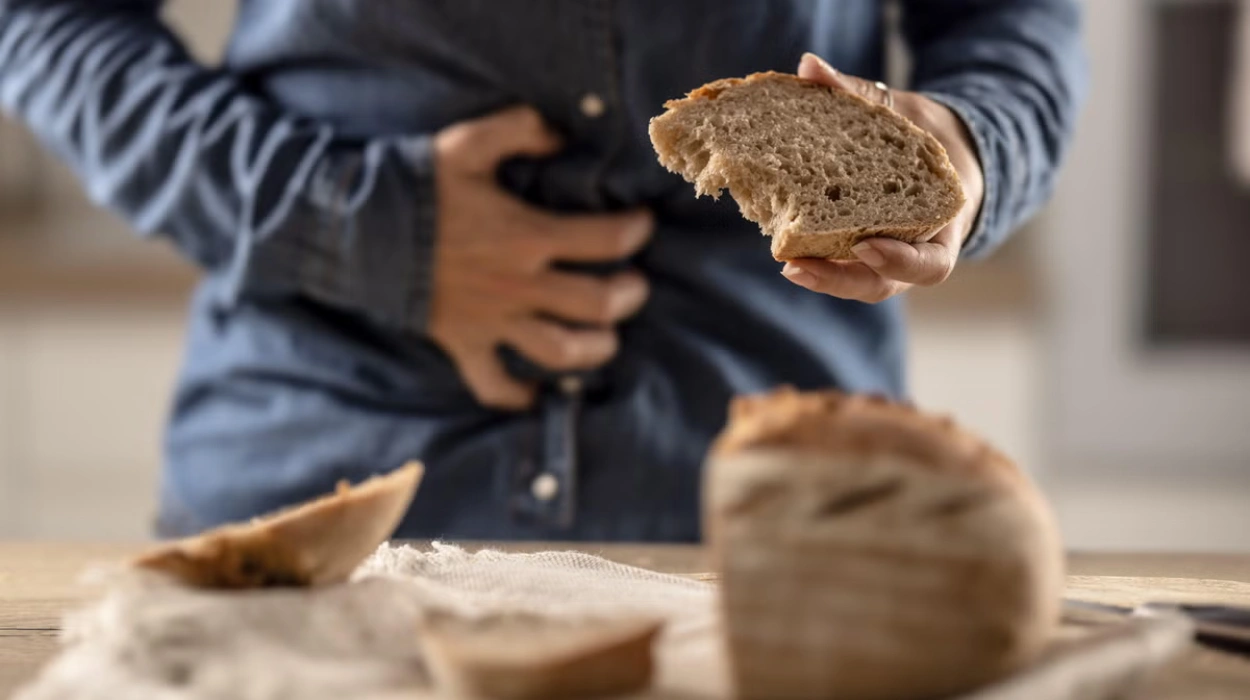UK (Parliament Politics Magazine) – NHS Cheshire & Merseyside will end gluten-free prescriptions for children, suggesting food banks instead, raising health and fairness concerns.
As reported by The Independent, NHS bosses in the North West have stopped providing gluten-free food on prescription to children with coeliac disease. They are urging families to use food banks instead.
Doctors’ views on replacing prescriptions with food banks
Nearly 40% of the country’s independent care boards have stopped providing gluten-free food to coeliac patients, citing higher NHS costs than retail prices.
Officials in Cheshire and Merseyside suggested that children in poverty use food banks, a move North West doctors have called “cruel and risky.”
The move comes despite medical guidance that a gluten-free diet is the only effective treatment, which affects around 1% of people in the UK. If left untreated, coeliac disease can lead to serious long-term complications.
How will ending gluten-free prescriptions drive health inequalities?
Doctors in the North West warned in emails that cutting prescriptions will increase health inequalities, affecting families who cannot afford food.
Cheshire and Merseyside ICB executives admitted in May that cutting prescriptions for adults and children would affect the poorest families.
One executive questioned,
“Have we established whether or not food banks and food pantries routinely have gluten-free products available, and if not, is that one of the mitigations that could be applied to make sure the most vulnerable do have guaranteed access through those mechanisms?”
Another stated,
“I’ll see if we can delve into the [food] pantries because I think that’s the area that perhaps we can have the greatest impact.”
At the tense meeting, a public member warned,
“You are taking food out of children’s mouths… This area has got some of the poorest areas in the country. You’re handing a statutory duty [back] to charity, back to Victorian values. You’re a bunch of Marie Antoinettes, you all should be ashamed of yourselves.”
The ICB approved a six-month extension on children’s prescriptions, set to expire in November.
Why are clinicians warning against ending gluten-free prescriptions?
Ahead of the prescription cuts, a clinician raised concerns about food poverty in the area, citing a child with diabetes who used emergency medication for dinner.
The email states,
“I was utterly shocked and very sad if I’m honest – and I absolutely understand the concerns that this will drive health inequalities in families of kids with coeliac disease…”
It added,
“The ICB’s mitigation strategy, which includes checking whether food banks stock gluten-free food – I think if they’re having to have this discussion, this isn’t a risk worth putting onto children. Their understanding of how people utilise food banks and pantries is actually quite optimistic and totally underestimates the risks.”
In another email, a clinician said the decision “shows shocking ignorance,” warning that short-term savings could lead to higher long-term costs.
According to an NHS dietitian, the policy could increase care costs, with some children unable to afford gluten-free food and appearing hungry in the clinic.
Doctors warned that poor dietary control in children with coeliac disease can lead to gastric lymphoma and cancer.
What did Dr Helen Stewart say about children and food banks?
Dr Helen Stewart, officer for health improvements for the Royal College of Paediatrics and Child Health, stated,
“Having to direct families to food banks is a much deeper systemic issue than just short-term food insecurity. It’s a symptom of rising child poverty and the fact that many families simply don’t have the income needed to provide a healthy, balanced diet for their children.”
He added,
“Food banks should only ever be a stop-gap measure, and they cannot reliably guarantee access to the specific foods or nutritional needs that growing children have.”
NHS Cheshire’s views on food bank use and gluten-free cuts
A spokesperson for NHS Cheshire and Merseyside confirmed food banks were not part of official mitigation, and access to gluten-free prescriptions varies across the region.
They added,
“It is important that we take a consistent approach for our whole population, while at the same time making sure that NHS resources are being used as effectively as possible.”
How did Coeliac UK and NICE respond to prescription changes?
Before the cuts, 2,300 people in Cheshire and Merseyside accessed gluten-free prescriptions before the reductions.
The ICB acknowledged concerns over children but said the cuts should proceed.
Coeliac UK reports that 13 of 42 care boards have ended gluten-free prescriptions.
In June 2025, the National Institute of Clinical Excellence said NHS gluten-free prescriptions differ across the UK and told doctors to use their judgment when giving them.
The body said gluten-free products are classed as “borderline substances,” giving them status for health management.


